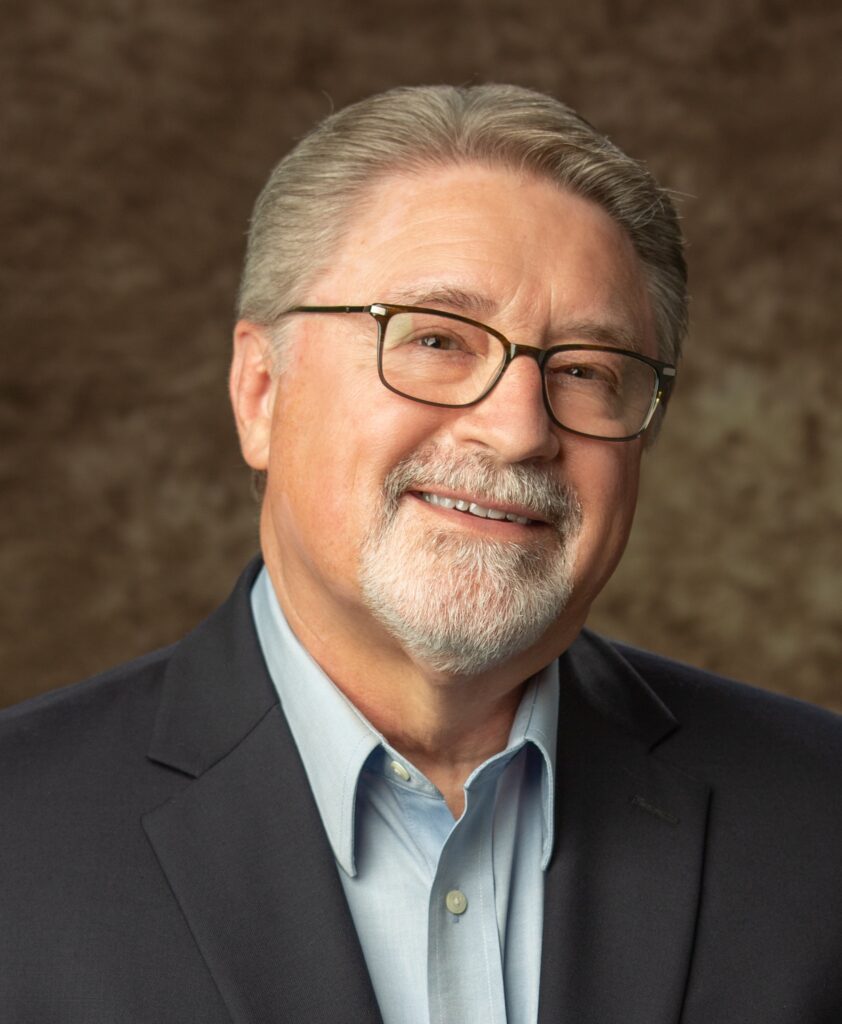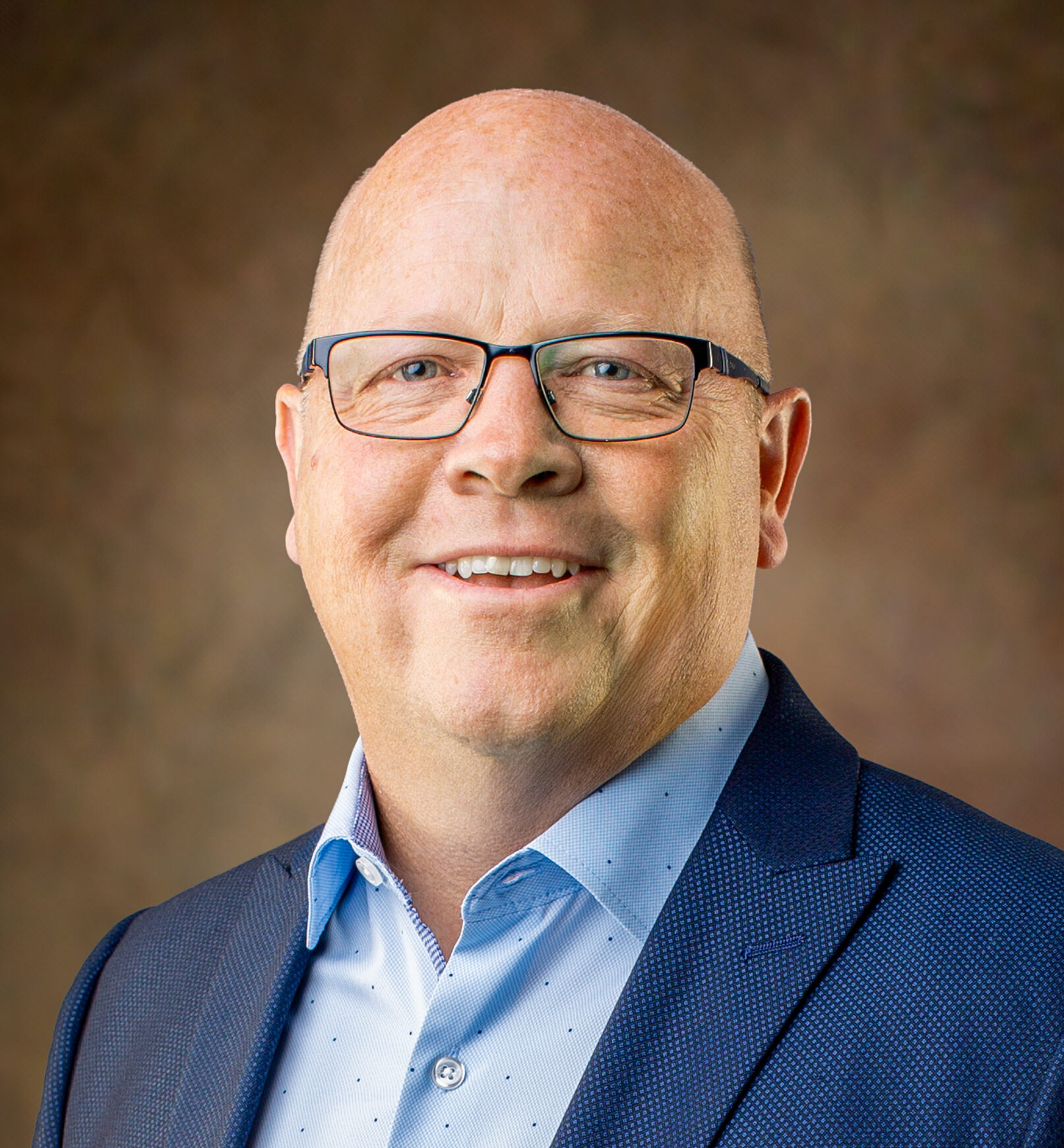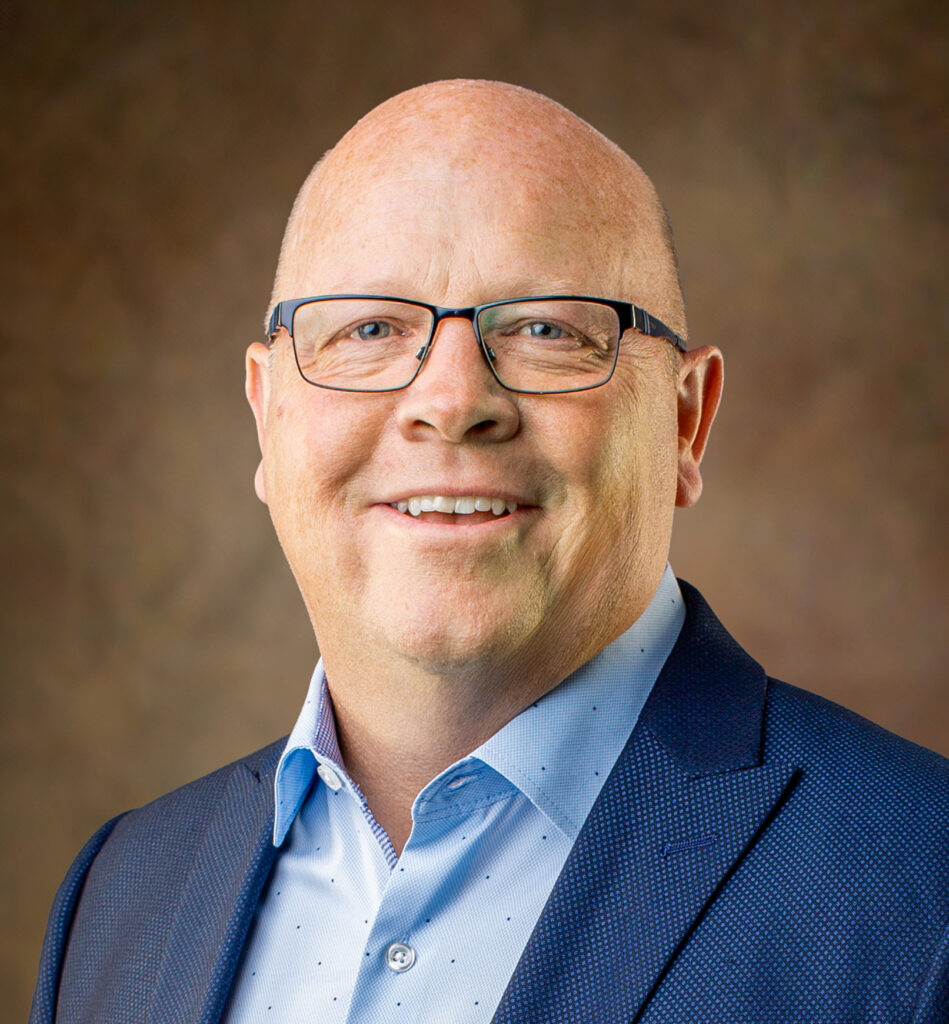President's Perspective
The Fragility of Unity
Published
2 years agoon

Most people have times when they feel and perhaps even act cranky. Those were the days that started with burnt toast and kept going that way. You have probably had a day or two like that, right? Mature believers recognize when that is going on inside even if they don’t understand why. They ask forgiveness from the Lord and anyone else who may have felt the brunt of their crankiness, forgive themselves, and move forward. Possible damage to relationships is either avoided or repaired. Loving, respecting, and honoring people in such a way is a reflection of God’s grace. And in God’s family of believers, unity is preserved and nourished when people interact in a way that pleases the Lord and heals others. Unity is not just a good idea. The Apostle Paul exhorts us, Therefore if there is any encouragement in Christ, if there is any consolation of love, if there is any fellowship of the Spirit, if any affection and compassion, make my joy complete by being of the same mind, maintaining the same love, united in spirit, intent on one purpose (Philippians 2:1-2, NASB). Surely Paul is not telling us to be robots who all think in identical ways, denying us our individuality, is he? The same mind?
What Do We Allow to Divide Us?
In the early church believers were beginning to sue each other in public courts. Paul preached a strong message against that in 1 Corinthians 6:1-8. There were quarrels that caused Paul to bring correction (1 Corinthians 1:10-17). At times they became so contentious that Paul said their meetings did more harm than good (1 Corinthians 11:17)! That is a strong condemnation. Disunity can become ugly! The same affliction can affect the twenty-first century church, when Christians seem to be unaware of or forget about their responsibility to build unity with other believers, including with people who hold slightly different views on various subjects. Unity can never be prioritized at the expense of sacrificing biblical truth. Foundational truths of the Bible are not negotiable. But how someone else interprets the application of a truth which you both uphold should not be allowed to fracture unity. In other words, we can be of the same mind with someone because we are in accord about biblical truth while we still have views that differ about lesser matters. For example, you and I may hold similar views regarding our interpretation about the baptism in the Holy Spirit while someone else maintains a different view. That difference should not be allowed to divide us as believers and undermine our unity in Christ. However, we would not be in unity with a person who denies the person and work of the Holy Spirit as the third part of a triune God. There cannot be unity over anything that clearly conflicts with Scripture.
Is It Essential or Non-Essential?
A seventeenth century theologian espoused the following guide regarding unity: In Essentials Unity, In Non-Essentials Liberty, In All Things Charity. He wrote that guideline in response to the Thirty Years’ War (1618-1648) during which religious tensions were a primary contributing cause. (Few people remember or know anything about that eventful war, but it cost more than eight million casualties, caused famine and disease, and is considered one of the most brutal wars in history.) The Moravian Church of North America and the Evangelical Presbyterian Church have adopted that guide as their motto. Perhaps it would be well for the rest of us to do the same. Hold to, do not dilute or compromise on essential truth. Allow for differences regarding non-essentials. At all times we should conduct ourselves in a loving, God-honoring manner when interacting about both essentials and non-essentials. The Apostle Paul wrote, Let all who are spiritually mature agree on these things. If you disagree on some point, I believe God will make it plain to you. But we must hold on to the progress we have already made (Philippians 3:15-16, NLT). Paul acknowledged that there will be differences between believers. In the early church there were disagreements about diet (vegetarian or not), whether to observe Jewish holy days, and circumcision. People did not always agree! I believe Paul is saying to the early church and to us today, You may not agree about a matter. When that happens, ask God to convince the other person, as long as you are open to allowing the Lord to convince you about a change in your view. Remember, we believers have made significant headway in building unity among us – don’t mess that up!
Matters That Can Splinter Unity
We can grievously damage unity in our churches because of callous insensitivity to people who hold different views about non-essentials. Someone may be on the other political side from you. You may passionately believe your side is correct, but the other person passionately believes their side is. Are you sacrificing your political convictions by choosing to remain united with the other person through and in Christ? Absolutely not. The matter, although important, is a non-essential regarding what the Word of God declares about unity. In eternity, our political differences will be left behind. Paul the Apostle wrote, I appeal to you, dear brothers and sisters, by the authority of our Lord Jesus Christ, to live in harmony with each other. Let there be no divisions in the church. Rather, be of one mind, united in thought and purpose (1 Corinthians 1:10, NLT). It defies God’s exhortation and heart to allow differences about such matters as political parties, vaccinations, cultural variations of expression, styles of worship, racial distinctives, age-based perspectives and so on to corrupt Christian unity. Frankly, it happens too often, and it grieves the heart of God. Although we are not this public about it some Christians might be comfortable renaming their church “First Church of the Vaccinated,” “No Jab Worship Center,” “Conservative Right Church,” or “Progressive Left Church.” People would know and be welcomed at the appropriate church where non-essentials (in relation to non-negotiable truths in the Word) have taken precedence over essentials. Extreme? Or not far from reality? Are we not allowed to have differences in order to have the same mind? We can’t help but hold different views about many subjects because of differences in background, upbringing, culture, and personalities. However, those differences are not more important than maintaining unity which is built on a foundation of faithfulness to God’s Word and embracing the grace of Jesus. Paul addressed our differences by describing us like parts of the human body: The human body has many parts, but the many parts make up one whole body. So it is with the body of Christ. Some of us are Jews, some are Gentiles, some are slaves, and some are free. But we have all been baptized into one body by one Spirit, and we all share the same Spirit (1 Corinthians 12:12-13, NLT).
Unity is Fragile
Unity is fragile, so much so that without determined intentionality to build and nourish it, disunity springs up like weeds in a garden. Unity is holy whereas disunity is sinful. Unity is uplifting whereas disunity is upsetting. Unity is God-honoring whereas disunity is God-abhorring. Unity occurs when the grace of Jesus is rooted in our hearts and is exhibited in our outlook, speech, and conduct. Jesus prayed that they will all be one, just as you and I are one—as you are in me, Father, and I am in you. And may they be in us so that the world will believe you sent me (John 17:21, NLT). Jesus is informing you and me that the world is watching, and the believability of our message will be directly impacted by the degree to which we model unity.
The eyes of the world are upon us.
About the Author

Randall A. Bach
Randall A. Bach delights in opportunities to serve the Lord, including his current assignment as president of Open Bible Churches. He earned a master’s degree in organizational leadership from Regent University. Randall and Barbara, his wife, have been in ministry almost as long as they have been married. They are grateful to have celebrated their 50th Wedding Anniversary in 2021. Randall loves the church, pastors, and church leaders and is convinced that God loves to work through them to make disciples, develop leaders, and plant churches. A voice for Evangelicals, his work has been featured in several publications, including Ethics: The Old Testament, The New Testament, and Contemporary Application. He serves as a member of the Board of Directors and the Executive Committee of the National Association of Evangelicals. Randall has produced and edited several publications and other resources, including the Message of the Open Bible, We Believe: Core Truths for Christian Living, a doctrinal course for youth called We Believe for Kids, and Thriving in the Spirit, an instructional book about the Holy Spirit and how we should respond to Him. He also led the creation of ACQUIRE, Open Bible’s online leadership development site.
President's Perspective
Living A Sent Life: Seeing and Meeting the Needs Around Us
Published
1 month agoon
February 27, 2025
“. . .As the Father has sent me, so I am sending you” (John 20:21 NLT).
In this issue of Message of the Open Bible you will discover some wonderful stories of how God is using everyday people to touch and transform lives and communities. You’ll read how people are opening their eyes and hearts to show and share the love of Jesus by “living sent.”
In my early years of ministry, I heard a phrase from well-known pastor Tommy Barnett that I have never forgotten. He defined ministry simply yet profoundly: “Ministry is seeing a need and meeting it.”

While this may be a simplistic approach, it has stuck with me, perhaps because it encapsulates much of what we see Jesus doing in His ministry. The scriptures tell us that “Jesus went around doing good and healing all who were oppressed by the devil” (Acts 10:38), and how He came “not to be served but to serve others and to give his life as a ransom for many” (Mark 10:45).
Barnett’s quote also helps us see ministry as more relatable, practical, and attainable for every follower of Christ. It takes away the perception that ministry is something done only by pastors, or “super Christians,” or a few of the chosen. It expresses a biblical understanding of what every person can do to share the love of Christ with others.
Finally, the quote brings ministry outside the walls of the church. Ministry is not confined to a designated place or a specific group of people; it happens both inside and outside of the church.
“We see life-giving, disciple-making, Spirit-empowered churches [and people] . . . who possess a missional mindset, multiplying priority, and a mobilizing commitment.”
This idea of ministry is consistent with our vision for Open Bible: “We see life-giving, disciple-making, Spirit-empowered churches [and people] . . . who possess a missional mindset, multiplying priority, and a mobilizing commitment.” It embraces the same principle of “living sent” that we want to embody in our movement.
At the heart of our vision statement is a core value of being missional – reaching out to those who are disconnected from Christ, multiplying disciples who are growing, and building other disciples to be mobilized to serve and use their gifts both inside and outside the church walls.
I love the local church and have served and led through it for over thirty years. I agree it is the hope of the world. But our goal is not just to go to church but to be the church (as the saying goes). Our goal is to live our lives on mission for the Kingdom.
We tried to prioritize this at Life Church in Concord, California, where my wife Julie and I pastored for many years. We taught our church family to be missionaries in our communities and in the spaces where they had influence.

One of our favorite annual outreaches was called “Summerfest.” This day camp provided a free, full-day and week-long experience for local kids. In an area where dual-income families are working to make ends meet, we provided a place where kids would have a blast, be cared for by dozens of volunteers, and experience God’s love. This simple camp blessed hundreds of families each year. That act of service opened hearts to the Good News.
When we serve others, we reflect the heart of Christ, who came not to be served but to serve and give His life as a ransom for many
Outreach is not only about meeting physical and emotional needs but also addressing spiritual ones. It is about building relationships, creating trust, and opening avenues for people to experience the transformative power of God’s love. When we serve others, we reflect the heart of Christ, who came not to be served but to serve and give His life as a ransom for many.
When we shift our focus from waiting for the next church-led outreach to personally engaging with those around us, we unlock the potential for exponential, “multiplied” kingdom growth.
For me as we planted our church, this looked like making a few very practical investments in our community. My daughters played soccer, so I volunteered to coach (I was the only dad to volunteer, so I got the job). Through that opportunity, I connected with families in our community. One of the soccer dads then asked if I would be interested in playing on his men’s city league softball team. By saying “yes” to his invitation, I was able to connect with even more people in our community, and long story short, that father surrendered his heart to Jesus and was one of the first people to be baptized at our church.
Serving people doesn’t always require a large-scale event or program. Sometimes, it is a simple conversation, a kind gesture, or a heartfelt prayer. As followers of Christ, we have the privilege of being His hands and feet in our own unique spheres of influence. When we shift our focus from waiting for the next church-led outreach to personally engaging with those around us, we unlock the potential for exponential, “multiplied” kingdom growth. One friend at a time, we can share the hope of Christ and watch as lives are transformed for His glory.
Remember these words of Jesus: “Whoever wants to be great must become a servant” (Matt 20:26 MSG). Let us be intentional in our outreach, committed to serving, and faithful in sharing the good news of Jesus Christ.
About the Author

Michael Nortune
Michael Nortune serves as president of Open Bible Churches. He has ministered in the local church faithfully for 35 years. From his start as a janitor and groundskeeper to lead pastor of Life Church in Concord, California, Michael has had the opportunity to gain experience in every capacity within the church throughout his ministry. Not only does he have hands-on experience on the local level, but Michael has also led at the district, regional, and national levels within Open Bible Churches. Michael and his wife Julie currently reside in Colorado and love living near five of their six children and their spouses. They also treasure the time they spend with their other daughter who lives in Alabama with their first (but not the last) grandson!

As we approach another election season, we find ourselves once again in an environment bringing tension, division, and uncertainty to people, including those within the Church. It is during times like this, however, that we as the Church can shine brightly. In the face of debates, advertisements, and news that may stir anxiety, we have a divine opportunity to anchor people to the unchanging hope of Christ.
The apostle Paul instructs us that “our citizenship is in heaven” (Phil. 3:20 NIV), and as followers of Christ, our ultimate allegiance is to God and His kingdom. While politics does have its importance and influence, it is reassuring to know our hope is not based upon human leaders or systems but in the Lord who reigns over all.
In the face of debates, advertisements, and news that may stir anxiety, we have a divine opportunity to anchor people to the unchanging hope of Christ.
There is no question that, as followers of Christ, we should engage in our civic duties with a kingdom-minded perspective and a biblical worldview. We vote, we pray for our leaders, we seek the welfare of our communities (Jer. 29:7), and we engage others with love. And as we do all of this, we hold to the truth that God’s sovereignty transcends the outcomes of elections.
In times that seem unstable or fragile, God’s Word tells us “we are receiving a kingdom that cannot be shaken” (Heb.12:28). We serve an “unshakable kingdom.” Governments change, leaders come and go, and through it all, God’s kingdom remains. It is unshakable, eternal, and built upon His righteousness and justice. No election can alter the reality of God’s sovereignty nor shake the foundation of His authority. It is His church that holds the keys to unlock heaven on earth and bring light to the darkness.
Here is the reality we stand upon: It is God who “controls the course of world events; He removes kings and sets up other kings” (Dan. 2:21 NLT), and “the king’s heart is in the hand of the Lord” (Prov. 21:1 KJV).
Because of this truth, we can embrace Paul’s word to the Philippians: “Don’t worry about anything; instead, pray about everything. Tell God what you need, and thank him for all he has done. Then you will experience God’s peace, which exceeds anything we can understand. His peace will guard your hearts and minds as you live in Christ Jesus” (Phil. 4:6-7 NLT). Based on this passage, if we are a people of prayer who walk in faith, seek God’s wisdom, and are grateful, THEN we know we will experience a peace that goes beyond natural understanding. I am reminded, comforted, and convinced of this truth, and it is an anchor to my soul.
No election can alter the reality of God’s sovereignty nor shake the foundation of His authority.
This November’s election will be followed in December by the celebration of Christ’s birth. What a perfect time to remember that Jesus is Emmanuel – God with us. This name, given to Jesus, is more than just a title; it is a promise that no matter what happens around us, God’s presence is constant and unchanging.
Whether the outcome of the election brings joy or disappointment, whether policies align with your hopes or create concerns, remember Emmanuel – God is with us. He is present in our churches, in our communities, in our families, and in our lives. He is not distant or disconnected; He is personally and actively involved in the lives of His people. Whoever is elected and however people respond – God still sits on the throne, His Kingdom is unshakable, and His plans are unstoppable. GOD IS WITH US.
Some practical steps for consideration:
- Pray for our leaders, regardless of who they are: Pray for their wisdom, discernment, and a spirit of humility.
- Stay united as the body of Christ: Let a heart of unity, love, and the bond of peace be what others see.
- Keep an eternal perspective: Engage in the political process, but keep your eyes fixed on Jesus, the author and finisher of our faith.
- Live out the things that will remain: faith, hope and love.
About the Author

Michael Nortune
Michael Nortune serves as president of Open Bible Churches. He has ministered in the local church faithfully for 35 years. From his start as a janitor and groundskeeper to lead pastor of Life Church in Concord, California, Michael has had the opportunity to gain experience in every capacity within the church throughout his ministry. Not only does he have hands-on experience on the local level, but Michael has also led at the district, regional, and national levels within Open Bible Churches. Michael and his wife Julie currently reside in Colorado and love living near five of their six children and their spouses. They also treasure the time they spend with their other daughter who lives in Alabama with their first (but not the last) grandson!

A medida que nos acercarnos a otra temporada de elecciones, nos encontramos una vez más en un ambiente de tensión, división e incertidumbre entre la gente, incluyendo a los que están dentro de la Iglesia. Sin embargo, es en tiempos como éste cuando nosotros, como Iglesia, debemos brillar con intensidad. Frente a los debates, los anuncios y las noticias que pueden provocar ansiedad, tenemos la oportunidad divina de afianzar a la gente en la esperanza inmutable de Cristo.
El apóstol Pablo nos dice que «nuestra ciudadanía está en los cielos» (Fil. 3:20, RVR1960), y como seguidores de Cristo, nuestra lealtad suprema es a Dios y a Su reino. Aunque la política tiene su importancia e influencia, es alentador saber que nuestra esperanza no se basa en líderes o sistemas humanos, sino en el Señor que reina, sobre todo.
Frente a los debates, los anuncios y las noticias que pueden provocar ansiedad, tenemos la oportunidad divina de afianzar a la gente en la esperanza inmutable de Cristo.
No hay duda de que, como seguidores de Cristo, debemos cumplir con nuestro deber cívico desde la perspectiva del Reino y con una cosmovisión bíblica. Votamos, oramos por nuestros líderes, procuramos el bienestar de nuestras comunidades (Jeremías 29:7) y nos relacionamos con los demás en amor. Y al hacer todo esto, nos aferramos a esta verdad: que la soberanía de Dios trasciende los resultados de las elecciones.
En tiempos que parecen inestables o frágiles, la Palabra de Dios nos dice que «recibimos un reino inconmovible» (Heb.12:28). Servimos a un «Reino Inconmovible». Los gobiernos cambian, los líderes van y vienen, y a pesar de todo, el reino de Dios permanece. Es inconmovible, eterno y está edificado sobre Su justicia y equidad. Ninguna elección puede alterar la realidad de la soberanía de Dios ni sacudir el fundamento de su autoridad. Es Su Iglesia la que tiene las llaves para abrir el cielo en la tierra y para llevar la luz a las tinieblas.
La realidad sobre la que nos apoyamos es la siguiente: Es Dios quien «controla el curso de los sucesos del mundo; él quita reyes y pone otros reyes» (Dan. 2:21, NTV), y «está el corazón del rey en la mano de Jehová» (Prov. 21:1, RVR1960).
A raíz de esta verdad, podemos hacer nuestras las palabras del Apóstol Pablo a los filipenses: «Por nada estéis afanosos, sino sean conocidas vuestras peticiones delante de Dios en toda oración y ruego, con acción de gracias. Y la paz de Dios, que sobrepasa todo entendimiento, guardará vuestros corazones y vuestros pensamientos en Cristo Jesús» (Fil. 4:6-7). Según este pasaje, «si somos un pueblo de oración que camina en la fe, busca la sabiduría de Dios y es agradecido, ENTONCES tenemos la certeza de que experimentaremos una paz que va más allá de la comprensión natural». Este pasaje me recuerda, me consuela y me convence de esta verdad, y es un ancla para mi alma.
Ninguna elección puede alterar la realidad de la soberanía de Dios ni sacudir el fundamento de su autoridad.
En diciembre, tras las elecciones de noviembre, celebraremos el nacimiento de Jesús. Qué momento tan perfecto para recordar que Jesús es Emmanuel: Dios con nosotros. Este nombre, dado a Jesús, es más que un título; es una promesa de que, pase lo que pase a nuestro alrededor, la presencia de Dios es constante e inmutable.
No importa si el resultado de las elecciones nos traiga alegría o decepción, sea que las medidas políticas se alineen o no con nuestras expectativas, o nos generen más preocupación, recuerde Emmanuel: Dios está con nosotros. Está presente en nuestras iglesias, en nuestras comunidades, en nuestras familias y en nuestras vidas. No está distante ni desconectado; Él está involucrado de forma personal y activa en la vida de su pueblo. Cualquiera que sea elegido y comoquiera que la gente responda: Dios sigue sentado en el trono, Su Reino es inconmovible y Sus planes son imparables. DIOS ESTÁ CON NOSOTROS.
Algunas medidas prácticas para tener en cuenta:
- Oremos por nuestros líderes, sin importar quiénes sean: Pidamos para ellos sabiduría, discernimiento y un espíritu de humildad
- Permanezcamos unidos al cuerpo de Cristo: Que un corazón de unidad, amor y el vínculo de la paz sea lo que los demás vean en nosotros.
- Mantengamos una perspectiva eterna: Participemos en el proceso político, pero mantengamos los ojos fijos en Jesús, el autor y consumador de nuestra fe.
- Vivamos conforme a lo que permanecerá: la fe, la esperanza y el amor.
Sobre el Autor

Michael Nortune
Michael Nortune es presidente de las Iglesias de la Biblia Abierta. Ha servido fielmente en la iglesia local durante treinta y cinco años. Desde sus comienzos como conserje y jardinero hasta ser pastor principal de Life Church en Concord, California. Michael ha tenido la oportunidad de adquirir experiencia en todas las funciones dentro de la iglesia a lo largo de su ministerio. No sólo tiene experiencia práctica a nivel local, sino que también ha liderado a nivel distrital, regional y nacional dentro de las Iglesias de la Biblia Abierta.






